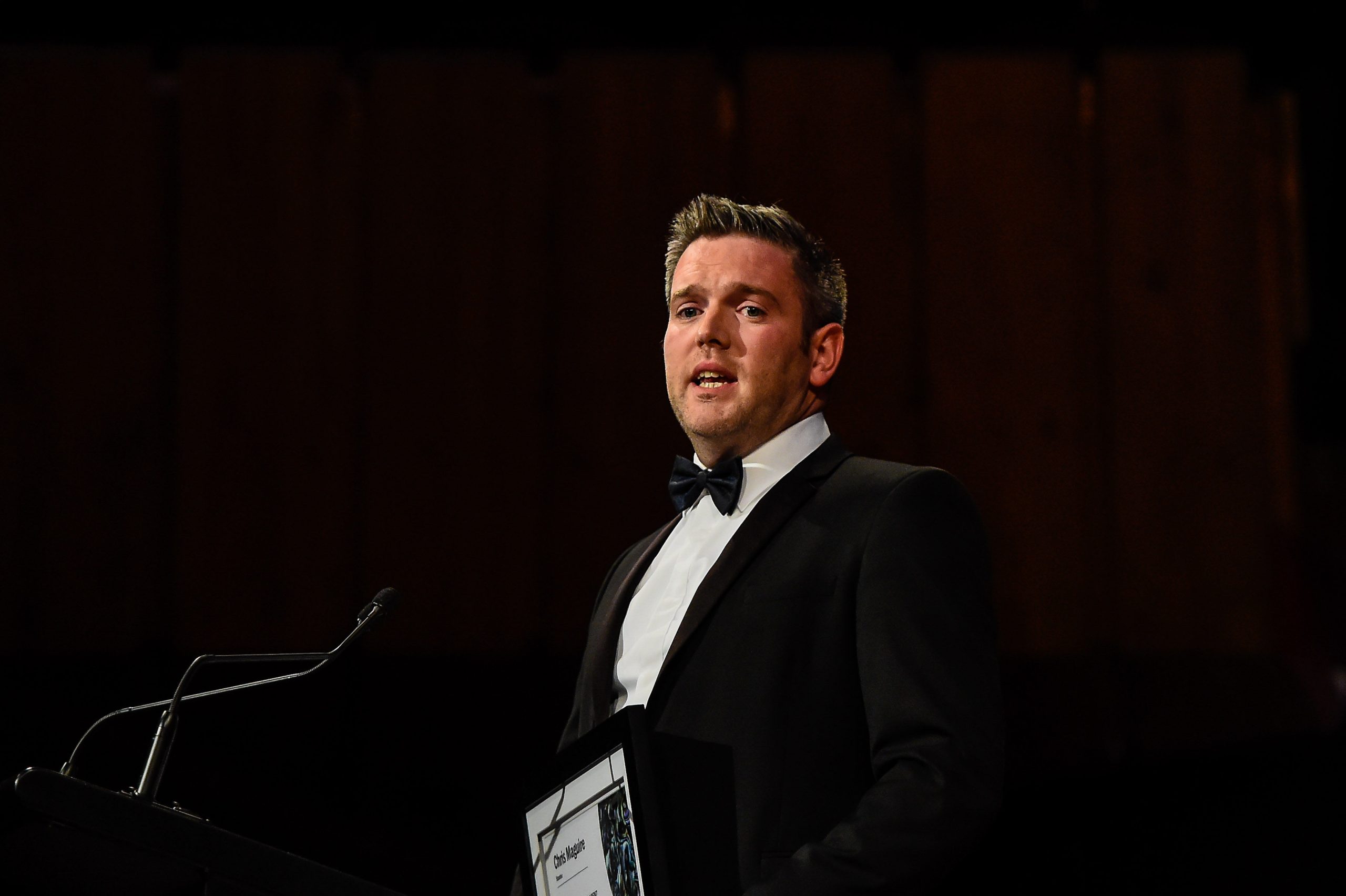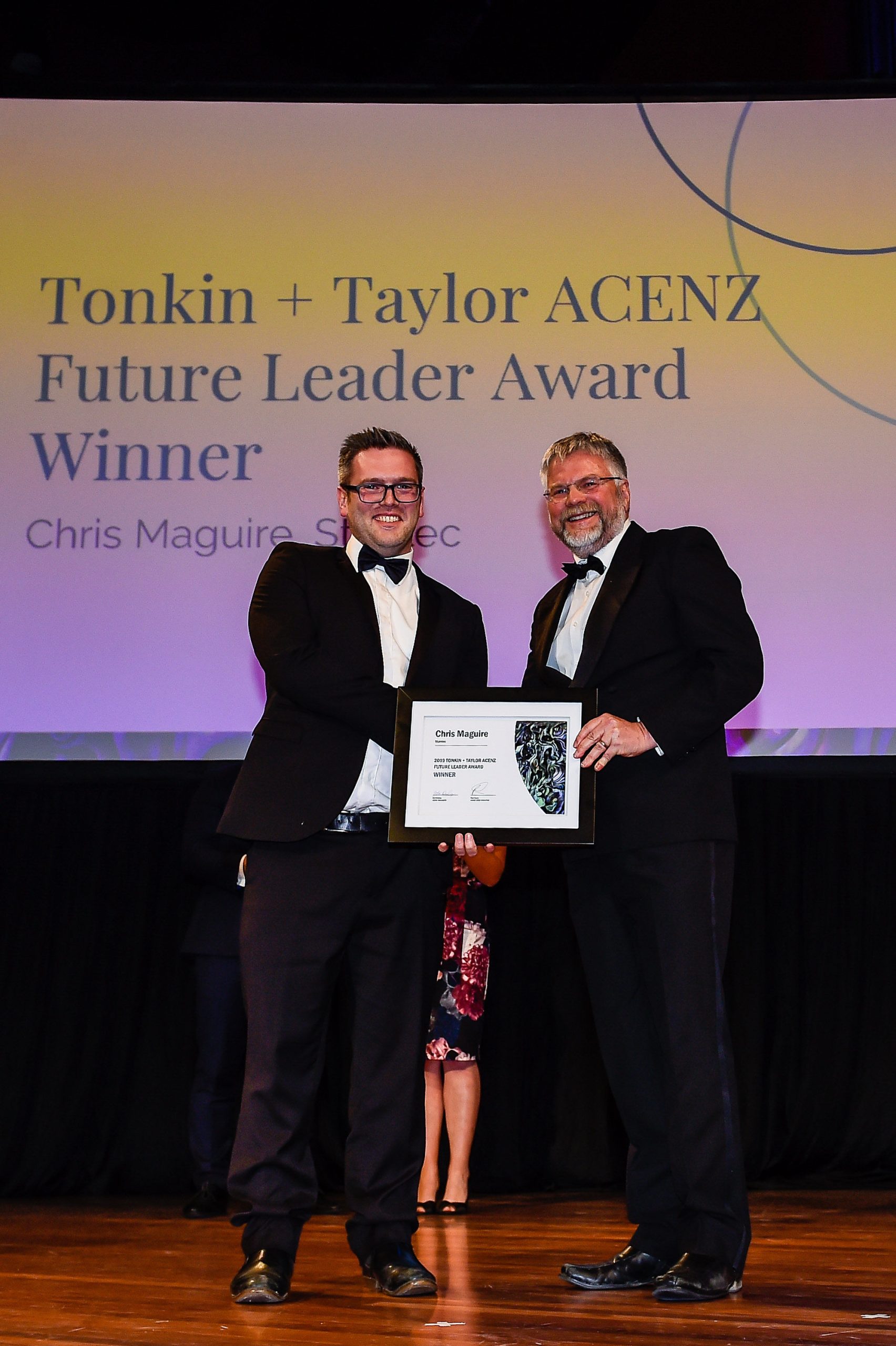CHRIS, WHAT DID IT MEAN TO YOU TO WIN THE EMERGING LEADER AWARD?
I believe it was recognition of the experience I had gained in the industry over the years. I had also gained further industry insights through working with different groups, including Infrastructure New Zealand, Women’s Infrastructure Network NZ, Engineering New Zealand and ACE New Zealand. The award also allowed me to open doors that led to conversations with industry leaders from around the country.
WHAT DID YOU TAKE AWAY FROM THE AWARDS PROCESS?
I was pleasantly surprised at how robust the whole process was. I was actually in Crete at a conference on natural hazards at the time of the interview. The interview panel included five members and took a lot of planning to get it completed. I was impressed that the process was not just a checkbox exercise; it was a comprehensive look at what I had done and what I was looking to achieve in the future.
HOW HAS WINNING THE AWARD INFLUENCED YOUR CAREER?
When I attended the Consultant Australia Leadership Conference, I was recognised as an ACE New Zealand award winner, and this opened the door for some interesting conversations with industry leaders. This may not have happened if I hadn’t won the award. I was able to chat with managing directors and CEOs from across Australia and New Zealand about leadership and also discuss general engineering business.
HAVE YOU UNDERTAKEN ANY PROFESSIONAL DEVELOPMENT SINCE WINNING THE FUTURE LEADER AWARD?
Enrolment in the Institute of Directors Company Directors course is included as part of my prize package which was a little different from the package offered to previous award winners. The course will allow me to study the governance aspect of leadership in New Zealand and to network with business leaders.
WHAT PROMPTED YOU TO TAKE ON ENGINEERING?
Well, many things in life come back to your parents. My father was an industrial electrician before becoming a health and safety manager at British Telecom. My mother was a teacher, and during my early years, I experienced what it meant to be involved in public service. I see engineering as a service to society, and through their work, engineers can give something back to society. Supporting the community is the reason I became an engineer.
WHAT ARE SOME OF THE CHALLENGES YOU FACE DAILY AT STANTEC?
When you become a manager, your job is not necessarily all about the projects; it becomes more about the people. The challenge becomes more about managing and growing your teams, along with determining what drives people. Managers must aim to balance encouraging the professional development of staff with their role in the growth of the business.
HOW DO YOU APPROACH CHANGE MANAGEMENT?
This generally is all about encouraging people to make changes in the way they work, but engineers by their very nature are traditionally risk-averse to most things. However, the good news is that the risk-averse nature of our people is changing a little in the current climate. Your team must clearly understand the reasons for change; they must be aware of the benefits of the change and be an integral part of the journey. Change is a journey; you can’t just click your fingers one day and make change happen. It’s a process that starts and ends with people.
YOU WERE INVOLVED IN VARIOUS ASPECTS OF THE CHRISTCHURCH EARTHQUAKE REBUILD. WHAT HAS THE ENGINEERING SECTOR LEARNT FROM THAT EXPERIENCE?
I think the primary lesson to be learned is to ‘take nothing for granted’. At any moment, change is imminent. If we are set in our ways, don’t learn, innovate and recognise the need for change we are going to be left behind. Looking ahead, it is evident that the industry is in change mode. We have AI taking over some of the tasks that current staff would generally do, we have parametric design taking over the design of buildings and pump stations, so we need to learn how to change and be more resilient. The concept of global networking has been around for a long time, and I believe the industry is just now starting to embrace this way of working. We are beginning to see the real benefits of working across regions, countries and continent, and this is a significant achievement for the engineering industry.
Connect with Chris on LinkedIn


